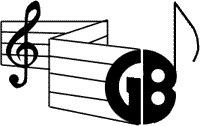4 minutes, Intermediate. Alymar $6
A free setting of the familiar Lenten spiritual. There are numerous allusions to the main theme interspersed with episodes. The traditional theme is presented with non-traditional harmonies (tonal) and changing meters. Homophonic and polyphonic textures are freely interspersed in this composition.
This has been a moving piece for audiences and organists.
"Very beautifully written and captures the reflective and contemplative nature of the hymn as well as a quiet sorrowful lament. Very moving reflection for Holy Week."
- Hollis Thoms, Composer
"Really lovely, with great color/register changes. And I loved the counterpoint."
-Ronald Pearl, Composer




